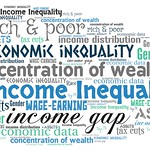
In September 2015, 193 world leaders agreed to 17 Global Goals for Sustainable Development. If these Goals are completed, it would mean an end to extreme poverty, inequality and climate change by 2030.
Goal 10: Reduce inequality within and among countries.
Last updated: 02 March 2026